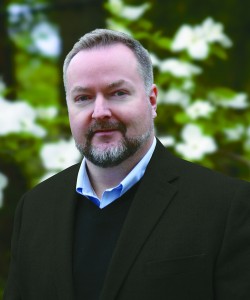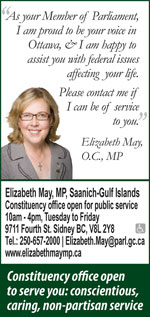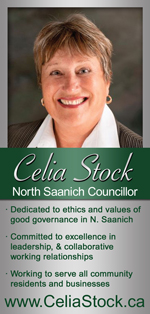
A Life and Death Conversation with Stephen P. Roberts
By J. Barlow, Citizen Journalist
What would you give for just one more day with someone you loved?
Did you both have a chance to say everything you wanted; to leave nothing undone? Sometimes death sneaks up and catches you unprepared; sometimes you see it coming a mile away, and you’re still not ready.
Stephen P. Roberts, North Saanich Gulf Islands Provincial Liberal candidate and member of the Vancouver Hospice Board of Directors fundraising committee, knows death is not a popular topic for conversation. Taxes; the environment; BC Ferries fares and salaries; people love to talk about those issues.
Conversations about death and dying are painful and uncomfortable; people would rather not think about it. They put it off, thinking, ‘There’ll be time for that later.’ Regrettably, for some people, “later” too often becomes “too late”.
For Stephen “later” came when his father was diagnosed with liver cancer four years ago. The family provided 24-hour in-home care as long as possible, taking turns staying up at night. “Everyone’s life was on hold. No one knew when the disease would take its toll. Providing round the clock care is exhausting and many people just can’t do those kinds of things for their loved ones,” says Stephen.
It was heartbreaking when his father inevitably went into the hospital. “Most people would prefer to be in our homes when we pass on,” Stephen observes, “but the reality is most of us will be in a hospital where people are busy and no one has time to be with you.” As for his father, “He spent his last two days in the hospital. They didn’t even have a room for him. He was in the hallway.”
When Stephen’s mother was diagnosed with pancreatic cancer a year later, things were very different. The frail 75 year old spent her last four days in Hospice, with a private room, a cot for sleepovers, a kitchen, and personal touches like a hand-crafted quilt on her bed. Even the family pet was welcome. And the nurses! “They were like guardian angels,” Stephen recalls.
At the end, Stephen was at his mother’s side. “I was humming a church tune that I knew she would know … I was holding her hand when she passed away. It was very moving for me.”
Dave Traynor, Manager of Communications at Victoria Hospice, joins the conversation. “We see that every day. People come in and they’ve never been through anything like this and it becomes a very profound experience – I almost hate to say it’s positive and yet that’s how it ends up.”
As if the Roberts family had not endured enough, Stephen’s brother also passed away three years ago from a massive heart attack. Stephen reflects on his passing. “There was no warning… he went suddenly and I never got a chance to help him.”
Dave notes that this scenario occurs all too often. “… about 20% [of the people at Hospice] are people who experience sudden or unexpected death and come in and seek our resources.”
The privilege of sharing end-of-life moments is a gift. “The end of a good life is something to be embraced and celebrated,” Dave asserts. “We all come up against it at some point. People get a chance to shed all that stuff that gets built up in life. They get to clean up their own lives and make amends if that’s what they need to do… everyone is better off if they get a chance to do that.”
Stephen has a suggestion for how everyone can make a difference. “We as individuals can advocate for better end of life care. We can also do what we can ourselves to make the end-of-life experience better. Government can do better, but we can also take responsibility to do better ourselves because government can’t do everything. We can donate or volunteer in so many ways.”
Both Stephen and Dave urge families to have those critical conversations before it’s too late. It might make you squirm, but a candid conversation about after death can bring peace of mind on the worst day of your life. If you’re not sure how to begin, Hospice can help, with reading and support material to point you in the right direction. Visit their website. While you’re there, maybe you could make a donation – more than half of their budget depends on donor dollars.
Do it today – not later. You never know when “later” might become “too late”.
www.victoriahospice.org
www.stephenproberts.ca




















What an amazing and relevant article.
Those of us who have experienced what paliative care and hospice can offer know the value of those services and the people performing them.
As optomistic humans we tend to avoid any involvement with the dying process until someone close to us is suddenly facing it and at that point we are in a daze of emotional overload.
Having been involved in several loved ones “end of life journey” ,I can tell you that it is a world we should learn about and support as we will all need it at some point.
There is no more important time for a person to be comfortable and as cared for as they are with hospice and paliative care, we all deserve love and comfort at the end of our life.
Liken it to discussions about organ donation and include it in family talks, even if its uncomfortable.
By removing some of the mystery surrounding the experience ,we reduce the fear.